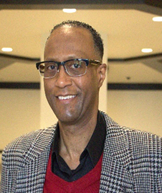

After the national election last month, citizens were either filled with joy and hope if their candidate won or filled with a range of contrasting emotions associated with disappointment in the outcome. Elections are about choices. These choices reflect what we value or want to see in our country and the leaders chosen to represent us. One author has written a thoughtful piece advocating for a time of “understanding, patience, and efforts to find clarity to do better.” 1 Before I can follow that admonition, I admit that I mostly have more questions than answers. In this short reflection, I will not offer my opinions or create a reasoned argument in one direction or another. Instead, I have chosen to raise questions about what is coming next. The list is not exhaustive or meant to be partisan. It represents a starting point to initiating a conversation about what is to come.
To this end, my questions are as follows:
- Problems or opportunities?
- How do we best create a shared understanding of the problems we face?
- What role does the past play in shaping our understanding of the present?
- How do we describe today’s context? By what circumstances, conditions, or objects are we surrounded?
- What has worked and what has not worked? And for whom?
- What is the present view? This view includes the political, policymaking, social, economic, technological, environmental, health, well-being, and cultural aspects of the country.
- What trends do we see that bring hope and optimism?
- What trends do we see that bring feelings of concern, uncertainty, anxiety, or despair?
- What is our understanding of evidence?
- What role does evidence play in understanding what we are observing? What sources of evidence and information do we trust, and why? Can we reconcile those sources of evidence and information, aligning interests that build trust beyond partisanship?
- What are the prevailing narratives? Do they help foster clarity, unity of purpose, and a desired vision for the future? Do those narrative aid in our efforts to establish effective communication? Or do they foster divisions, confusion, misinformation, or a lack of trust in systems and people?
- What are our long-term hopes for the country?
- What vision of the future do we really want for the country?
- Will that desired future be equitable and provide opportunities for all Americans?
- What relationship do we care to have with those around us? Can we create authentic communities where we live, work, learn, play, etc.? Is that goal possible in America?
- What kind of global citizens should we be to the rest of the world?
While I could add more questions to this list, I will resist the temptation to do so. I am hopeful that my list prompts you to think about your own questions. More importantly, l hope that any questions about the future will include opportunities to work collaboratively on answers to our questions with others searching for viable solutions that provide opportunities for all our citizens. And to that end, I look forward with cautious optimism.
Author Bio:

Karl J. McCleary, PhD, MPH
Dr. McCleary is the Associate Dean of Strategy, Professor and Program Director for the Doctoral Program in Health Policy and Leadership, and Executive Director of the Center for Health Strategy and Innovation at the School of Public Health. He also serves as a Faculty Scholar in the Loma Linda University Health Institute for Health Policy and Leadership. His research and practice interests include health policy, transformation, and strategic change; innovation, systems thinking and redesign; and population health.
References:
- Galea, S. (2024, November 6). On understanding, patience, and finding clarity to do better. The Healthiest Goldfish: Newsletter. Accessed through subscription at Substack.com.
